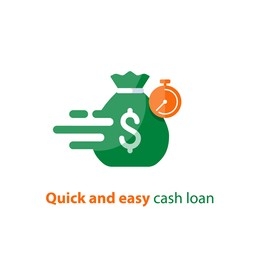In recent years, blockchain technology has been gaining widespread popularity due to its unique features that offer several advantages in various industries. Blockchain is a distributed ledger that records and stores transactions in an encrypted and secure way. It is a decentralized system, which means there is no central authority or middleman involved, making it more secure and transparent. In this article, we will discuss the advantages of blockchain technology in detail.
1. Introduction
Blockchain technology is a digital ledger that records and stores transactions in a secure, transparent, and immutable manner. Each transaction is recorded as a block in the chain, making it virtually impossible to alter or hack. Blockchain technology is widely used in various industries, such as healthcare, banking, and finance, supply chain management, and real estate, among others. The advantages of blockchain technology are many, and we will explore them in the following sections.
2. Transparency and Security
One of the most significant advantages of blockchain technology is transparency and security. Blockchain is a decentralized system, meaning there is no central authority or middleman involved. Each transaction is recorded on multiple nodes, making it virtually impossible to alter or hack. Blockchain technology provides a secure and transparent platform for transactions, ensuring that the data is protected from fraud and tampering.
3. Decentralization
Decentralization is another significant advantage of blockchain technology. Traditional systems are centralized, meaning that they rely on a central authority or middleman to facilitate transactions. Blockchain technology eliminates the need for a central authority, making it a more democratic and transparent system. Decentralization also ensures that there is no single point of failure, making the system more robust and secure.
4. Immutability
Immutability is a unique feature of blockchain technology. Once a transaction is recorded on the blockchain, it cannot be altered or deleted. The blocks are linked together in a chain, and any changes made to one block will affect the entire chain. Immutability ensures that the data on the blockchain is secure and tamper-proof.
5. Reduced Costs
Blockchain technology can significantly reduce costs in various industries. Traditional systems are costly, as they rely on a central authority or middleman to facilitate transactions. Blockchain eliminates the need for a central authority, making transactions faster and cheaper. Blockchain technology also eliminates the need for intermediaries, reducing costs and increasing efficiency.
6. Faster Transactions
Blockchain technology provides a fast and efficient platform for transactions. Transactions can be processed in real-time, eliminating the need for lengthy settlement times. Blockchain technology provides a faster and more secure platform for transactions, ensuring that the data is protected from fraud and tampering.
7. Increased Efficiency
Blockchain technology provides an efficient platform for transactions. Transactions can be processed in real-time, eliminating the need for intermediaries. Blockchain technology provides a faster and more secure platform for transactions, ensuring that the data is protected from fraud and tampering. The increased efficiency of blockchain technology ensures that transactions can be processed quickly and accurately.
8. Data Privacy
Data privacy is a significant concern for many industries. Blockchain technology provides a secure platform for transactions, ensuring that the data is protected from fraud and tampering. Blockchain technology also provides a platform for anonymous transactions, ensuring that the data is kept private and secure.
9. Smart Contracts
Smart contracts are self-executing contracts that can be programmed to execute when specific conditions are met. Smart contracts are an essential feature of blockchain technology, providing a secure and efficient platform for transactions. Smart contracts eliminate the need for intermediaries, reducing costs and increasing efficiency.
10. Supply Chain Management
Blockchain technology provides a transparent and secure platform for supply chain management. The distributed ledger ensures that each transaction is recorded and can be traced back to its source. This ensures that the supply chain is transparent and secure, reducing the risk of fraud and counterfeiting.
11. Digital Identity Management
Digital identity management is an essential feature of blockchain technology. Blockchain provides a secure platform for managing digital identities, ensuring that the data is protected from fraud and tampering. Digital identity management can be used in various industries, such as banking, healthcare, and voting systems, among others.
12. Voting Systems
Blockchain technology can be used in voting systems, providing a secure and transparent platform for voting. The distributed ledger ensures that each vote is recorded and can be traced back to its source, ensuring that the voting system is transparent and secure.
13. Healthcare Industry
Blockchain technology can be used in the healthcare industry, providing a secure platform for managing patient data. The distributed ledger ensures that the data is protected from fraud and tampering, ensuring that patient data is secure and confidential.
14. Banking and Financial Industry
Blockchain technology can be used in the banking and financial industry, providing a secure and transparent platform for transactions. The distributed ledger ensures that each transaction is recorded and can be traced back to its source, reducing the risk of fraud and counterfeiting.
15. Real Estate Industry
Blockchain technology can be used in the real estate industry, providing a secure platform for managing property transactions. The distributed ledger ensures that each transaction is recorded and can be traced back to its source, reducing the risk of fraud and counterfeiting.
16. Conclusion
Blockchain technology is a game-changer in various industries, providing a secure, transparent, and efficient platform for transactions. The advantages of blockchain technology are many, including transparency, security, decentralization, immutability, reduced costs, faster transactions, increased efficiency, data privacy, smart contracts, supply chain management, digital identity management, voting systems, healthcare industry, banking and financial industry, and real estate industry.
17. FAQs
- What is blockchain technology?
Blockchain technology is a digital ledger that records and stores transactions in a secure and transparent manner.
- What are the advantages of blockchain technology?
The advantages of blockchain technology are transparency, security, decentralization, immutability, reduced costs, faster transactions, increased efficiency, data privacy, smart contracts, supply chain management, digital identity management, voting systems, healthcare industry, banking and financial industry, and real estate industry.
- What industries can benefit from blockchain technology?
Various industries can benefit from blockchain technology, such as healthcare, banking, and finance, supply chain management, real estate, and voting systems, among others.
- What is a smart contract?
A smart contract is a self-executing contract that can be programmed to execute when specific conditions are met.
- How does blockchain technology ensure data privacy?
Blockchain technology provides a secure and transparent platform for transactions, ensuring that the data is protected from fraud and tampering. Blockchain technology also provides a platform for anonymous transactions, ensuring that the data is kept private and secure.




